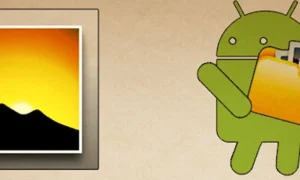Free Satellite Imagery Apps
Satellite imagery apps have become indispensable tools for a variety of industries, including agriculture, urban planning, the environment, and even for personal use. Technology has advanced significantly in recent years, allowing anyone to access high-resolution images of the planet with just a few clicks. Best of all, many of these apps are available for free, offering a range of features that are accessible to both beginners and advanced users. They allow you to view the world in real time or near real time, monitor changes in the terrain, plan routes, study weather patterns, and much more.
Advantages of Applications
Free Access to High Quality Images
Many apps offer free access to high-tech satellite imagery, including regularly updated data. This allows users to track environmental changes, weather conditions or even changes to specific properties at no additional cost.
Ease of Use and Intuitive Interface
Most applications are designed with user-friendly interfaces, allowing people with different levels of technical knowledge to use them easily. In addition, there are tutorials and built-in support that help with navigation and understanding of the available functions.
Real-Time or Near Real-Time Updates
Some applications can provide images with updates almost in real time, essential for professionals who need up-to-date information on weather conditions, natural disasters or monitoring remote areas.
Versatility of Uses
These apps are useful for both educational and commercial purposes. Farmers can monitor their crops, architects can plan projects based on local terrain, and geography enthusiasts can explore distant locations without leaving their homes.
Multi-Device Compatibility
The main satellite imagery applications are available on mobile devices (iOS and Android) and also in desktop versions, ensuring flexibility for the end user. This allows for use in the field or in the office, depending on the need.
Frequently Asked Questions
These applications receive data collected by orbiting satellites and transform it into visible images, often combining optical, infrared and other sensor data. This information is processed and made available in real time or with a small delay.
Yes, most apps require an internet connection to load images and updates. However, some offer the option to download maps for offline use at a later time.
Some of the most popular are Google Earth, Sentinel Hub, NASA Worldview and Skyscanner Flight Tracker. Each has its own unique features, but they all offer valuable features for different types of users.
The images come from official sources and recognized institutions, such as space agencies and research centers. Therefore, they are considered highly reliable, although some may contain occasional delays or technical limitations.
In most cases, yes. Many applications allow you to export images and data for educational or corporate use, as long as you respect the copyright rules and terms of use specific to each platform.



